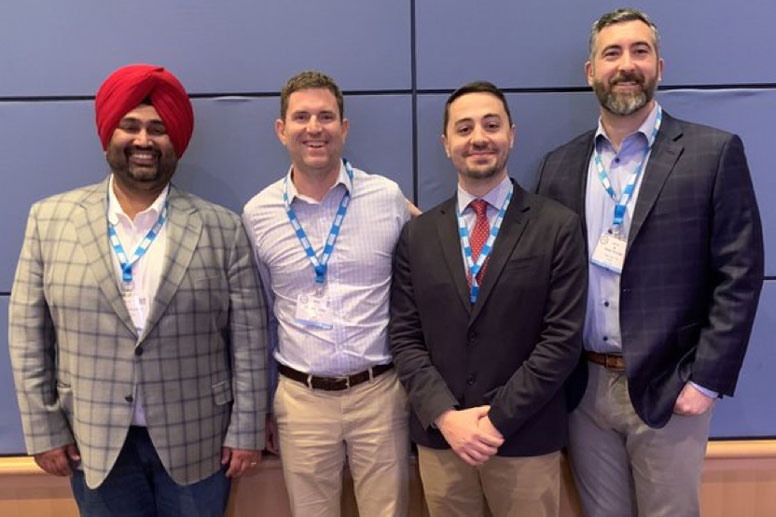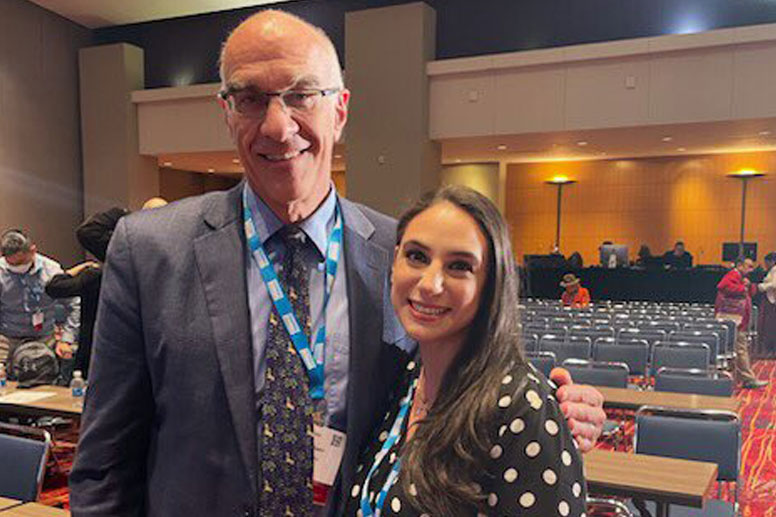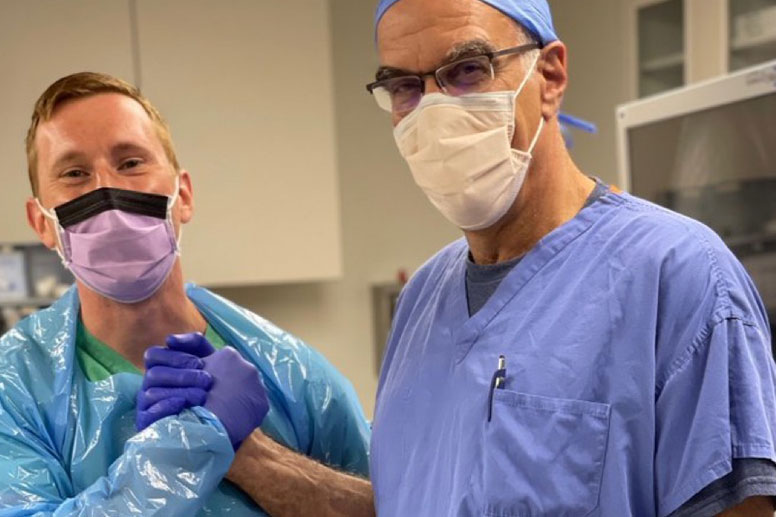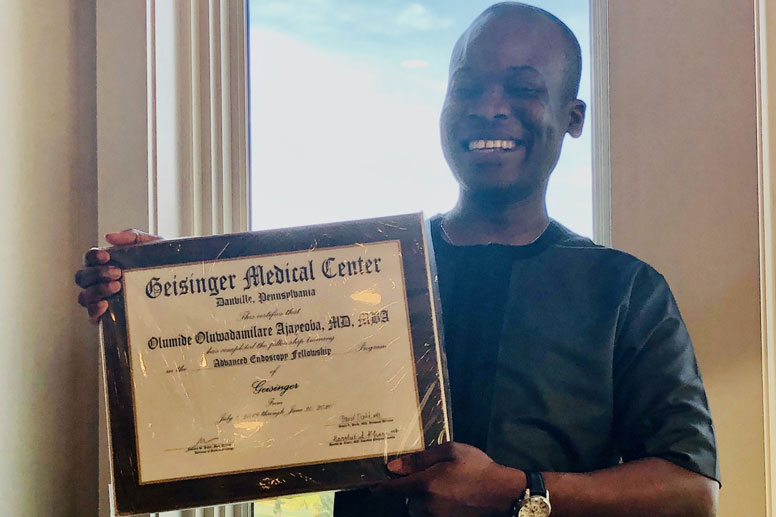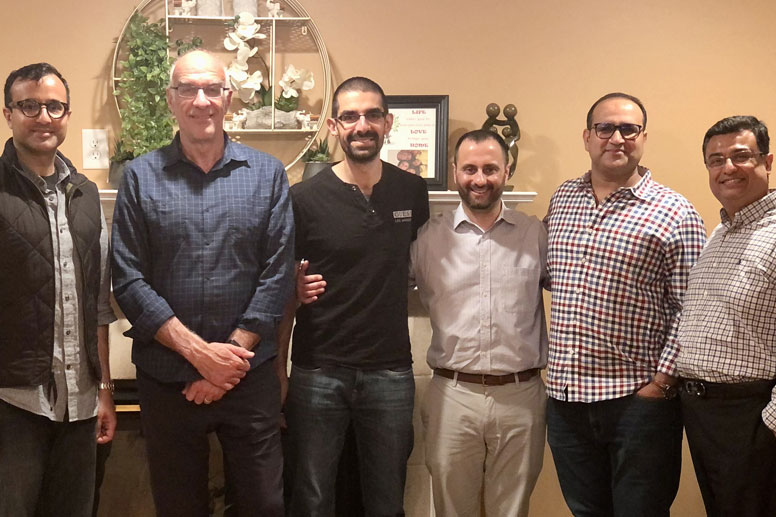Advanced Endoscopy Fellowship
Geisinger's one-year Advanced Endoscopy Fellowship is for physicians who plan a career in gastroenterology with a focus on interventional endoscopy as an investigative and consultative therapeutic endoscopist.
To join us, you must be certified by the American Board of Internal Medicine or an equivalent body and have completed a three-year training program in gastroenterology. We’re also looking for evidence of superior performance in GI subspecialty training, based on your academic record and recommendations — specifically regarding your endoscopic skills.
As our fellow, you’ll have hands-on advanced endoscopy training in:
- Endoscopic ultrasound (EUS) including therapeutic EUS procedures such as placement of AXIOS stent for WON, gallbladder drainage, and gastro-enterostomy, EUS-guided fiducial placement and EUS-guided hemostasis
- Endoscopic Retrograde Cholangiopancreatography (ERCP), ampullectomy, SpyGlass cholangioscopy, intraductal ablation, and significant volume of pancreatic endotherapy; EUS-guided ERCP in altered anatomy, EUS-guided biliary drainage and EUS-Directed transgastric ERCP (EDGE) procedures
- EndoHepatology with EUS-guided liver biopsy, Shearwave, FibroScan and EUS-guided portal pressure measurement
- Barrett’s esophagus diagnosis and therapy, including endoscopic mucosal resection (EMR), ESD, RFA, conventional and Hybrid-APC and Cryoablation (both spray and balloon cryotherapy)
- Advanced tissue resection and polypectomy, with use of various assistive devices, Endoscopic Full Thickness Resection, EMR and ESD
- Luminal stenting of esophagus, duodenum and colon
- Interventional IBD and management of difficult strictures of the GI tract
- Device-assisted enteroscopy with single balloon, NaviAid and Spirus technologies
- Endoscopic management of GERD with EndoFlip, Stretta and TIF procedures
- Various other advanced techniques including endoscopic treatment of Zenker’s diverticulum, hemorrhoidal therapy, pneumatic dilation, Per Oral Endoscopic Myotomy (Z-POEM, E-POEM, and G-POEM) and Overstitch endosuturing
- Endobariatrics with endoscopic weight and metabolic management
Most of your training in advanced endoscopic procedures will take place at Geisinger’s main hospital in Danville. You’ll also gain experience at Geisinger Community Medical Center in Scranton and Geisinger Wyoming Valley Medical Center in Wilkes-Barre with a team of 14 advanced endoscopy faculty. And you’ll spend about 20% of your time as an attending, supervising core GI fellows who are performing inpatient GI procedures, staffing the inpatient consultation service and managing complex biliary and pancreatic cases.
Your duty hours won’t exceed 80 per week.

